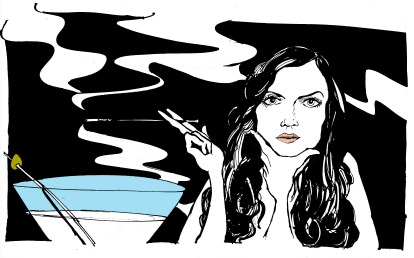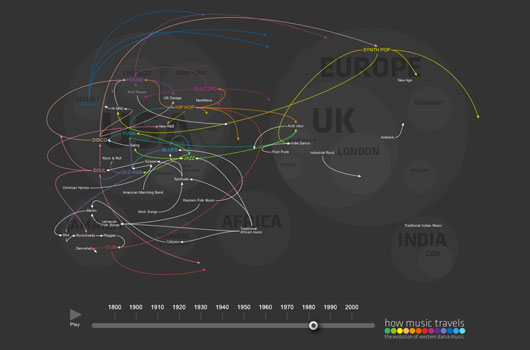Mindblown: a blog about philosophy.
-
UK ‘subsidising nuclear power unlawfully’
They say financial rules for nuclear operators include subsidies that have not been approved by the commission. These include capping of liability for accidents, which they say at least halves the cost of nuclear electricity. The government says it is confident that policies do not provide subsidies. The complaint, by the Energy Fair group, also […]
-
Newcastle United: Council plea over St James’ Park name
In November it was announced the ground was being renamed Sports Direct Arena, after owner Mike Ashley’s company. Many fans reacted angrily but the club said it was a prelude to securing a new global sponsor. Councillors agreed to write to media outlets “respectfully requesting” them not to use the new name. The motion was […]
-
Podcast: Occupy Wall Street meets Occupy London
On the day that Occupy London lost their high court eviction battle and exactly 4 months since protesters set up camp in what’s now known as Liberty Square in New York, Orchard Times’ Kim Willis brought together Karanja Gacuca from OWS and Jamie Kelsey-Fryfrom Occupy LSX to look back on how this unprecedented global movement has evolved and what they each think of their sister camp on the other side of the pond.
-

Whatʼs The Difference Between a Sleuth, a Snoop And a Snake?
In Britain we love to spy and be spied upon. Reality shows are novocain for the sharp pangs of our undercover yearnings. We cherish our mobile telephone numbers until they become our personal bar codes. National Express train posters encourage you to report fellow passengers who are propping their feet on the seat or hiding in the loo from the conductor. There is little irony in Big Brotherʼs Britain.
-

A History of Dunwich: The Second Installment
When Daniel Defoe visited Dunwich in the 1720s he noted that “fame reports that once they had fifty churches in the town; I saw but one left, and that not half full of people”. Fame had exaggerated, but the fall from grace was stark. For Defoe, the ruin of Dunwich was particularly poignant because it had been brought about not by human folly but by natural causes. To him, the downfall of once great cities lacked the tragedy of the downfall of Dunwich: “The ruins of Carthage, of the great city of Jerusalem, or of ancient Rome, are not at all wonderful to me. The ruins of Nineveh, which are so entirety sunk as that it is doubtful where the city stood; the ruins of Babylon, or the great Persepolis, and many capital cities, which time and the change of monarchies have overthrown, these, I say, are not at all wonderful, because being the capitals of great and flourishing kingdoms, where those kingdoms were overthrown, the capital cities necessarily fell with them; but for a private town, a seaport, and a town of commerce, to decay, as it were, of itself (for we never read of Dunwich being plundered or ruined by any disaster, at least, not of late years); this, I must confess, seems owing to nothing but to the fate of things, by which we see that towns, kings, countries, families, and persons, have all their elevation, their medium, their declination, and even their destruction in the womb of time, and the course of nature.” For those in low-lying coastal regions, the battles and concerns of great civilisations are more often than not offset by the battle to prevent your family drowning. In this, the Suffolk coast shares a concern with the coastal communities of the Netherlands. The Dutch province of Zeeland lies below sea level. Its flag shows a lion emerging from the water (half of the lion is still in the water, so there is a suggestion that it could still drown) and its motto is “I struggle and emerge”, which leaves you in no doubt as to what the primary concern was for the people of the province. One folk tale from Zeeland, “The mermaid of Westenschouwen”, tells of fishermen who catch a mermaid in their nets. She is brought back to land and everyone in the town marvels at her. But her merman husband misses his mermaid and every day his voice can be heard calling for her, telling the people of the town he wants her back. Unlike Tom Hanks in Splash, the fishermen refuse to return the mermaid and they are shouted at one last time by the mermaid’s husband:
-

Forever Young: The Curtailed Prospects of the iPad Generation
As the population grows and the job market becomes more competitive, new technology also allows employers to do more with less staff. Those young people who don’t possess either a certain techie skill set or relevant work experience in that field are quite simply surplus to requirement.
-

Spruced Up Soul – Sit Back, Stand Up
Here’s just a handful of edits & remixes sampling old-school soul, r&b and motown sounds with gloriously groovy results … from uplifting, bouncy house music inspired by Dusty Springfield & Marvin Gaye to disco-tinged Aloe Blacc and funky jungle sampling James Brown. It’s all superbad.
-

Musical Histories: Data For Your Dinner Conversations
Buzzfeed recently featured some rather disappointing facts relating to music sales. We felt inspired to showcase some more gossip-worthy tattle, so here goes. The histories of Rock and Dance, at your fingertips.
-
Fortnight Journal: ‘Honoring The Past, Archiving The Future’
Fortnight Journal is a fantastic project that’s picked up steam this year and looks set to keep impressing with its array of talented contributors. Taking precocious ‘millennial generation’ individuals and showcasing their work and funneling them through 14 different discipline areas, Fortnight is a verifiable attempt to skip the top-down patronage of specialist hierarchy and invest instead in provocative, cross-germinated ideas from the first generation to not know what life is like without internet: ‘as social media helps topple autocracies around the world, our millennial contributors collaborate across borders. Only on Fortnight will a young Venetian video artist be set aside a young Vietnamese-American tribunal lawyer–the original work of both informed by ancient Rome. Staying multi-disciplinary allows Fortnight to nurture new networks around timeless affinities’.
-

Does Every Publisher Need a Don Draper?
One of the greatest consequences of the digital revolution, and the triumph of the internet specifically, is that content publishers who would never before have had the opportunity to distribute their product now have a viable medium through which to reach readers and consumers on a global scale. The previous barriers of bringing the contributors together, printing the information, and getting it into stores and news outlets have been circumvented – this has undoubtedly led to an upsurge in variety, creativity and individuality within the sector. However, one age-old and ubiquitous barrier to true freedom of content remains: money, cash, the almight dollar, whicher guise you prefer. Unless the producers wish to forever stay limited to writing as a hobby around work, they must bring in revenue to support themselves and the venture to render it sustainable.
Got any book recommendations?